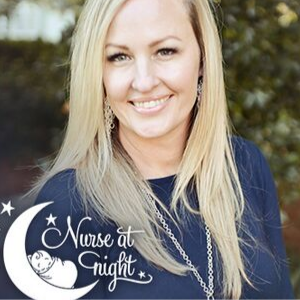One thing we all have in common as parents are questions. Lots of questions. Whether it’s concerning how to save for your child’s college fund, best practices for dental care, or how to talk to your child about a death in the family, it can feel overwhelming at times. While Google is handy, it can also be confusing and most importantly, unreliable.
We are so excited to introduce a new feature on Charleston Moms called Ask the Experts where a team of local experts will answer your burning parenting questions in a monthly blog post. Our hope is that you get answers to some common questions that many parents have and connect with these amazing resources right here in our community!
Want to learn more about our team of local experts? Have a question? Ask it here and it will be answered in next month’s post!
*This is a sponsored post, presented by our valued local partners. While we love sharing these resources with our readers, we have not personally vetted each individual business represented here and encourage our readers to do their own research to find the best fit for their family.

Children's Health
Q: What are the best ways to boost immune systems of younger kids?
A: Thanks so much for this important question! After babies are born, they are often relying on their mother’s immunity in their bloodstream until their own immune systems develop further.
There’s not much evidence to support any of the supplements or products that claim to boost immune systems. Specifically, vitamin D, vitamin C, echinacea, garlic, zinc, and oscillococcinum have not been shown to boost immunity. Additionally, effects of many of these supplements have not been studied so could be harmful if not given under direction of a physician. There are quite a few things families can do to promote healthy immune systems in children:
- for newborns/infants, the AAP recommends exclusive breastfeeding for at least 6 months with continuation for as long as mutually desired by mother and infant
- childhood vaccinations, including influenza
- appropriate immunization of mother during pregnancy and other household members, including influenza, as babies will be at high risk for acquiring infections when they are born before they can be fully immunized
- routine handwashing and other germ prevention strategies
- well-balanced, healthy nutrition and healthy weight
- quality sleep
- avoid secondhand smoke
- antibiotics should be used judiciously (not for viral infections)
- regular exercise
Expert(s):
Elizabeth Mack, MD, MS
Division chief of pediatric critical care
MUSC Children’s Health

Oral Health
Q: What kind of an investment are parents looking at when it comes to braces these days?
A: Orthodontic fees range according to difficulty ie how complex is the issue that needs to addressed. In our area an average fee for a standard, adolescent, comprehensive orthodontic case ranges from $5000 to 6500 which may or may not include diagnostic records and retainers.
Most offices will spread this amount out over a set period of time, typically 24 months interest free to make it a more manageable amount. Any insurance benefits that you have will be taken off the total fee and reduce your monthly obligation. For example, if your treatment fee is $5000 and you have $1000 insurance benefit, then the remaining $4000 would be spread over 24 months giving you a monthly obligation of $167. This monthly payment may be further reduced by a larger down payment made at the initial construction appointment (when you get braces or aligners). Other ways to save is to “Pay in Full” to receive various discounts or even use your FSA/HSA card to save tax dollars and get Paid in Full discounts.
If you are interested in finding out more specifics regarding treatment costs, options and payment plans, feel free to schedule a complimentary consultation at our office! (843)285-5315.
Expert(s):
Dr. Katie Bullwinkel
Board Certified Orthodontist
Bullwinkle Orthodontics

Financial
Q: What are some of the biggest financial mistakes people should avoid when they get married?
A: One of the most important things for newlyweds to discuss is their finances before getting married. Some couples prefer to keep their money separate and others prefer to open a joint bank account. And more often than not, there also tends to be a saver and a spender in the relationship. Come up with a plan on how you might navigate that.
Discuss your financial goals together so everyone is on the same page. Things like: when you want to buy a house, how much you want to save each month and if you want to pay for your children’s education. Some couples also might like the idea of creating a budget so everyone is on the same page.
It is important to be transparent with your spouse about debt. If your spouse has significant student loans, that could affect your ability to buy a house. Also, it’s important to remember that you’re on the same team. Lying about your spending can cause severe problems.
Typically someone is what we call the “bill payer.” It’s important that the other spouse is still included on what’s going on and not left in the dark. Holding monthly reviews can help with that.
It’s important that both spouses are respected. If one earns more than the other, that is okay. You are both equal. Be sure that the “breadwinner” does not get to make decisions simply because they make more money.
If you are a newlywed or soon to be married, take the step to a better financial future by scheduling a financial review using the link below.
Expert(s):
Caroline Mahoney, Financial Services Professional
Steven Fazio, Financial Services Professional
Riley Knudsen, Financial Services Professional
New York Life, Charleston

Education
Q: What are the major differences between private school and public school?
A. Parents have so many schooling options to consider, including neighborhood public schools, public charter and magnet schools, private and independent schools, parochial schools, and homeschooling. We’ll focus on independent and public schools here.
What is an Independent School?
An independent school is one that is independently governed and does not depend on a municipal or state government for funding. Each independent school is guided by its own unique mission and governed by its own board of trustees. An independent school must be accredited by a state or regional accrediting authority.
Is Every Private School an Independent School?
Not all private schools are independent schools. For example, parochial schools are often governed at the diocesan level rather than at the school level.
How do Independent Schools Compare to Public Schools?
– Testing
Although independent schools, like public schools, use standardized testing to measure their students’ progress, decision-making at independent schools is not driven by standardized tests to the degree that it is at public schools. Many public schools across the country have reduced or eliminated recess or classes in science, social studies, and the arts in order to strengthen their students’ outcomes on state-mandated tests. Instead of spending inordinate amounts of time on test preparation, independent schools are able to devote attention, energy, and effort to creating experiences through which students can develop the soft skills necessary for success in our increasingly interconnected and rapidly evolving society.
– Results
The High School Survey of Student Engagement (HSSSE) is a survey designed to investigate the attitudes, perceptions, and beliefs of high school students about their work. In the 2017 survey, comparisons between the responses from independent school students and public school students include:
I asked or answered questions in class. independent school 61%, public school 42%
I received feedback from teachers on assignments. independent school 64%, public school 37%
I discussed questions in class that have no clear answer. independent school 46%, public school 25%
My school contributed very much to the following skills:
Thinking critically (asking Why?): independent school 58%, public school 30%
Developing creative ideas and solutions: independent school 47%, public school 23%
Speaking effectively: independent school 47%, public school 25%
My school contributed very much to the following behaviors:
Treating people with respect: independent school 51%, public school 31%
Working well with others to complete tasks: independent school 43%, public school 25%
– Relationships
Added value in independent schools is especially found in the relationships that are fostered. The class size and school size at most independent schools lend themselves to the development of close and powerful relationships between teachers and students, between teachers and parents, and between families with shared values.
Expert(s):
Joanne Stemple
Director of Communications
Mason Prep School

Oral Health
Q: What do parents need to know about dental sealants for their kid’s teeth?
A: What is a sealant?
Sealants are suggested for children ages 6 and older to protect their permanent teeth with deep grooves and crevasses that are difficult and at times impossible to clean. These surfaces, are most susceptible to developing cavities in children. According to The American Academy of Pediatric Dentistry dental sealants decrease the risk of tooth decay by 80% in permanent molars.
How do dental sealants work?
Bacteria live on the debris in the deep grooves and can cause a breakdown of the enamel, resulting in a hidden cavity. Even if your child brushes and flosses carefully, it is difficult to clean the tiny grooves and pits on certain teeth. Food and bacteria build up in these crevices, placing your child in danger of tooth decay. Dental sealants protect these areas of the teeth and make them much easier to clean.
What makes a Kids Teeth sealant different?
The doctors at Kids Teeth perform all sealant procedures. First they create a large surface area for the sealant by reshaping and deep cleaning the grooves of the teeth, assuring there is no cavity below before application. This process allows the sealant material to fill deep into the affected area for better retention of the sealant. We also use a flowing filling material (instead of a sealant liquid) because it’s harder and more resistant to wear.
How long do they last?
With regular dental care and proper at home hygiene, our sealants are significantly durable and will protect the teeth. It’s very rare at Kids Teeth to replace a sealant when patients follow our instructions for at home care.
What is treatment like?
To maximize effectiveness of the sealant application we use nitrous at a low level. The N2O reduces gag reflex and allows the patient to relax providing the doctor the necessary environment for a more effective seal. The appointment is typically 45 minutes and patients can resume normal activities right away.
If you have any further questions please do not hesitate to ask!
Expert(s):
Dr. Mike & Dr. Will
Board Certified Pediatric Dentists
Kids Teeth

Newborn Care & Postpartum Support
Q: What are some tips for keeping kids on their sleep schedule during vacations or time away from home?
A: Personally I think vacations and trips are what makes memories that last a lifetime! You can invest in all of the cool gadgets and fun toys but it’s the time away from the day-to-day norm that brings families closer together and create memories that last forever!
At the same time you do want your littles to get good sleep when you’re traveling so here are a few tips to help keep all things in place and schedules on target.
1. Give yourself grace. It’s not home… so it won’t be like home!
2. Keep them fed! Wether feeding a baby or toddler, keep the feeding schedule as close to the norm. There are so many fun discractions while traveling but not eating as often can lead to serious melt downs.
3. Give opportunity for naps around the same time you offer naps at home. If they take a nap, great! If not, the down time will be good as well.
4. Stick to the same bedtime routine. Start with bath, then read 2 books, etc.
5. Create a similar sleep environment. White noise, swaddle or sleep sack and a dark sleep space will help bring familiar sleep. Check out the Slumber Pod for traveling! LIFE SAVER!
6. If nothing goes as planned, it’s ok! You can get back on track when you return home.
Safe Travels!
Experts(s):
Liz Price
RN
Nurse at Night

Adolescent & Family Therapy
Q: My husband and I have different styles when it comes to disciplining our kids, which causes some tension between us at times. How can we reconcile these differences and work better as a “united front”?
A: Thank you so much for your question! I am sorry to hear about the tension in your relationship but know this is a common dilemma amongst parents. Parenting is hard! There is not a perfect solution but if you both are devoted to each other; these concerns can be resolved.
Talk It Out
Ideally, you and your partner discussed your parenting strategies long before you decided to have children together. If you haven’t, it is not too late to start. It is simplest to start by sharing your parenting philosophies with each other. Discuss the ideas you have and listen to your parent about concerns you have not thought about. During this discussion, compromised must occur.
Create Rules Together
You’re setting yourself up for failure if your house rules are something like, “Be good, or you’ll be in trouble.” This vague approach to discipline lends itself to miscommunication, misunderstandings and ultimately, fighting. You and your partner should agree on specific rules and write them down.
These may include statements such as what time each child goes to bed, that kids are required to ask before playing outside and that homework must be completed before electronics are used. Allowing your children to add their thought will make it easier for them to follow the rules.
Back Each Other Up
After the plan is in place, it is critical that you stick to it and be consistent. You are setting the whole family up for disaster if one of you is following the plan, but the other is allowing children to break the rules or is not enforcing them by insisting on compliance with the consequences. It is tempting to give in to unhappy kids, but the message you’re sending the kids is that you and your partner can be divided and conquered.
Be Flexible
How you parent the kids should be flexible enough to be changed as they grow. You and your partner should be re-assessing the parenting structure as needed. Also, take into consideration the child’s personality. Some children need more supervision, some less. Some are more manipulative, and others have more of a pleasing nature. You know your child, so adapt to their needs
You don’t have to let differences in parenting styles ruin your relationship. Listen to each other, compromise on what is important, and agree you both are on the same team. This can go a long way toward raising a family in harmony.
Expert(s):
Ashlin Blum
Executive Director
Empowered Family











